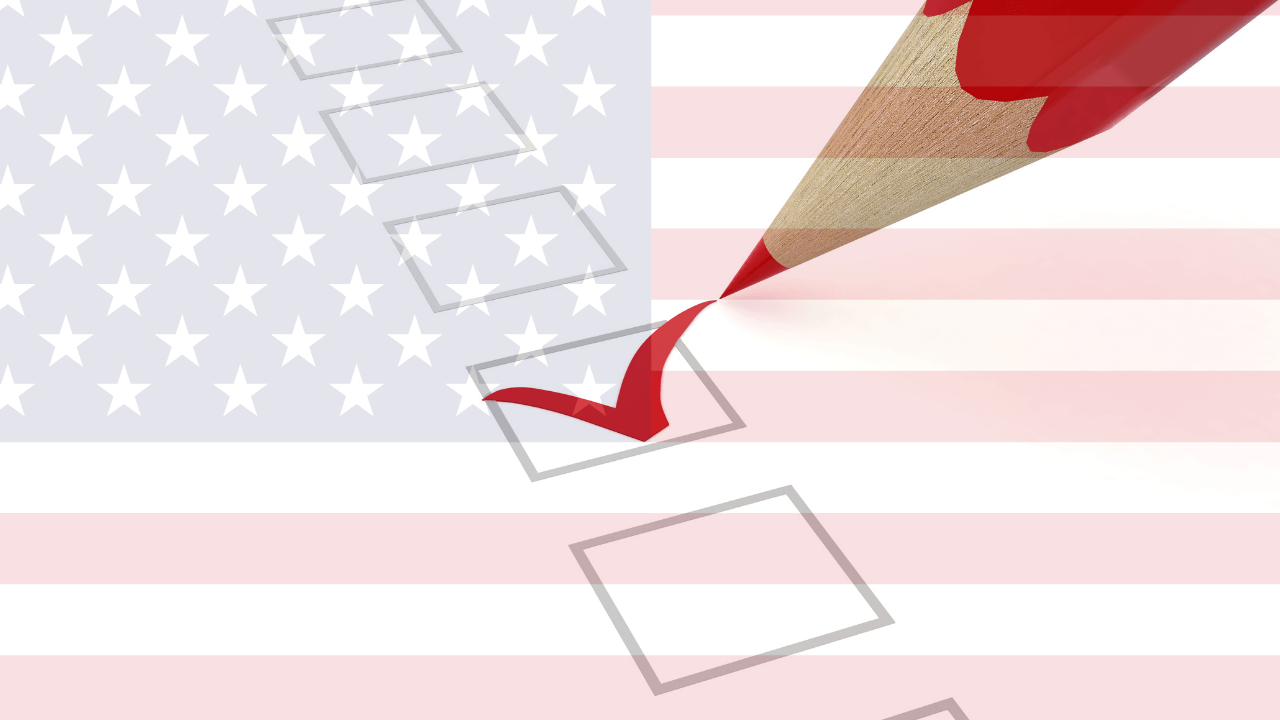Language:
The Complete Checklist for US Business Compliance: Taxes, Licenses, and Regulations

Running a business is challenging.
There are a million things to consider — from getting customers to making a profit. But one thing you can’t afford to ignore is staying compliant.
What does that mean? It means making sure your business follows all the rules.
These rules come from the government, from your industry, and even from your own customers. It’s about paying your taxes right, getting the needed licenses, and respecting people’s privacy.
Why does it matter? Because not following the rules can be a real headache.
You could get hit with hefty fines or, even worse, end up in court. It can damage your reputation and make it hard to do business. No one wants that, right?
But don’t worry — we’ve got you covered. This checklist is your guide to navigating business compliance. We’ll break down the most important rules and tell you how to ensure you’re doing everything right.
From taxes to licenses to data privacy, we’ll cover it all.
By the end of this checklist, you’ll clearly understand your compliance obligations and the tools to manage them effectively.
Let’s start and ensure your business is on the right track.
1: Understanding Your Business Structure
Selecting the appropriate business structure is a foundational decision. It can significantly impact your company’s operations, legal liability, and tax obligations.
The primary structures include sole proprietorships, partnerships, limited liability companies (LLCs), and corporations.
A sole proprietorship is the simplest structure. It keeps the business and owner legally indistinguishable. While easy to establish, owners bear unlimited personal liability for business debts and obligations.
In a partnership, two or more individuals share ownership and responsibilities. General partnerships offer simplicity but expose partners to unlimited personal liability. Limited partnerships provide limited liability for some partners but require at least one general partner with unlimited liability.
LLCs combine the pass-through taxation benefits of partnerships with the limited liability protection of corporations. However, operating agreements and compliance with state-specific regulations are essential.
Corporations are separate legal entities from their owners (shareholders). They offer the strongest liability protection but are subject to more complex formation and ongoing compliance requirements.
Corporations are also typically subject to double taxation, meaning the corporation pays taxes on its profits, and shareholders pay taxes on dividends.
The optimal business structure depends on various factors, including the nature of the business, the number of owners, desired liability protection, tax implications, and funding needs.
Careful consideration and, potentially, legal counsel are recommended to make an informed choice.
2: Federal Tax Compliance
Adherence to federal tax regulations is essential for businesses of all sizes. Failure to comply can result in significant financial penalties and legal repercussions.
Businesses are generally subject to three primary federal taxes: income tax, employment taxes, and excise taxes.
Income tax is levied on a business’s net profits. The specific tax rates and filing requirements depend on the business structure.
Employment taxes encompass payroll taxes such as Social Security, Medicare, and federal income tax withholding, which are typically shared between the employer and employee.
Excise taxes apply to specific goods or services like alcohol, tobacco, and fuel.

Accurate and timely tax filing is crucial.
Businesses must adhere to strict deadlines for filing tax returns and remitting payments. Penalties and interest may accrue for late or underpaid taxes.
Maintaining comprehensive financial records is also essential for accurate tax reporting and potential audits.
While tax compliance can be complex, businesses may be eligible for deductions and credits to offset their tax liability. These deductions and credits vary based on business activities and expenses.
3: State and Local Taxes
Navigating state and local taxes can be tricky. Unlike federal taxes, which change a lot from place to place, these vary widely. The main ones to watch are income, sales, and property taxes.
Income tax is like a fee on how much money your business makes.
Some states don’t have one, but many do. Sales tax is added to the price of things you sell. Then, property tax is based on the value of your building or land.
Something important to know is the “tax nexus.”
This means your business has a connection to a state. If you do, you might owe that state taxes. This can get complicated, mainly if you sell things online or work with customers in different states.
The tax rules can change often. What’s true today might not be true tomorrow. It’s crucial to stay up-to-date and consult tax experts like the ones at doola to avoid any surprises.
4: Employment Compliance
Making sure you treat your employees right is essential. Not only is it the right thing to do, but it also keeps you out of legal trouble.
The government has many rules about treating workers, and you need to follow them.
Some federal laws you need to know about are the Fair Labor Standards Act (FLSA), the Equal Pay Act, and Title VII:
- The FLSA sets rules for minimum wage, overtime pay, and child labor.
- The Equal Pay Act says you have to pay men and women the same for the same job.
- Title VII is about not judging people based on race, color, religion, sex, or national origin.
But it’s not just about federal laws. Many states and cities have rules, too, which can change often. You need to keep an eye on what’s happening in your area.
A good employee handbook and clear company policies can help you stay out of trouble. These documents tell your employees what’s expected of them and what they can expect from you.
When you hire someone new, there’s a process to follow. You must ensure they can work in the US, give them paperwork to fill out and show them the ropes. This is called onboarding.
Then, if you need to let someone go, you should take steps to ensure it’s done legally and fairly.
Finally, you need to understand payroll taxes. These taxes are taken from your employees’ paychecks and sent to the government.
You have to figure out how much to take out and send it in on time. It can get complicated, so using payroll software is often helpful.
5: Business Licenses and Permits
Licenses and permits are like official stamps that say you can run your business.
But what’s the difference? A license is more general. It says you can do a particular type of business. A permit is more specific. It lets you do something particular like sell food or build something.
You might need licenses or permits from the federal, state, and local governments.
It depends on what you do. For example, if you sell food, you might need a health permit from the city and a food handler’s license from the state.
Every business is different, so finding exactly what you need is essential. Research the rules for your industry and talk to others in your field to learn what they must do.

Getting a license or permit can take time. Start early and be patient. You’ll often need to fill out forms and maybe pay a fee.
Some places might even inspect your business before giving you the go-ahead. Remember, permits and licenses often need to be renewed, so don’t forget about that!
6: Industry-Specific Regulations
In addition to the general rules, your business might have to follow special laws specific to your industry. These rules can be necessary, and breaking them can get you in big trouble.
Some businesses face more challenges than others. Take healthcare, for example. Doctors, nurses, and hospitals must follow many rules to keep patients safe. The finance industry is another one.
Banks and investment firms must protect people’s money and follow rules about how they can do business.
And then there’s food service. Restaurants and grocery stores have strict rules about handling food to prevent illness.
It’s important to know the rules for your industry. Don’t just guess what you need to do.
Take the time to find out exactly what’s expected of you. Talk to people in your industry, check government websites, and maybe even consult an expert to help you understand the rules.
7: Data Privacy and Security
In today’s digital world, protecting your customers’ information is crucial. If you mess up, you could lose customers. That’s why data privacy and security are so important.
Data privacy means keeping people’s information safe and only using it for its intended purpose. Data security is about stopping hackers from stealing information.
There are lots of rules about how to handle data. Some are GDPR, CCPA, and HIPAA. These laws say how you can collect, store, and use people’s information.
But it’s not enough to just follow the rules. You also need a plan for what to do if something terrible happens, like a data breach.
A data breach is when someone steals your customers’ information. Having a plan in place can help you fix the problem quickly and protect your business.
8: Environmental Compliance
Being kind to the environment is not just good; it’s often a legal requirement for businesses.
Depending on your company’s activities, you might need special permits or licenses to operate. These are in place to protect natural resources like air, water, and land.
Proper waste management is a big part of environmental compliance. This means handling garbage, recycling, and any hazardous materials responsibly. Dumping things illegally or not disposing of chemicals correctly can lead to hefty penalties.
The Environmental Protection Agency (EPA) is the central government body that sets environmental rules in the US. It creates standards for air and water quality, manages waste, and protects natural habitats.
Businesses must follow EPA regulations and often need permits to operate.
In addition to the EPA, many states and local governments have their own environmental laws, making the situation even more complex.
Following environmental rules protects the planet and helps your business’s reputation.
Customers increasingly care about how companies treat the environment, so being eco-friendly can attract customers.
Plus, avoiding fines and legal issues saves you money in the long run.
9: Consumer Protection
Treating your customers fairly is not just good business; it’s the law. There are rules in place to protect people from getting ripped off or hurt by products — consumer protection laws.
Being honest with your customers is vital. Don’t make false promises or hide information. People need to know exactly what they’re buying.

If you sell something dangerous, you need to be clear about the risks. Product safety is a big deal. You can’t sell things that will hurt people.
You must be clear about what’s in your products. Labels should tell people what ingredients are used and provide any necessary warnings.
Following these rules keeps your customers safe and protects your business from legal trouble.
10: Record-Keeping and Documentation
Keeping good records is like having a roadmap for your business. It helps you stay organized, make smart decisions, and avoid problems.
Imagine running your business without knowing how much money you’re making or spending. That’s why accurate and organized records are so vital.
Not only do you need to keep good records, but you also need to hold onto them for a certain amount of time. For example, tax laws say you must keep some records for years.
Bookkeeping will be a lifesaver if you need to prove something later, like a sale or an expense.
To make record-keeping easier, you might want to use a bookkeeping service. Such services help you organize finances, track inventory, and manage employee information.
Handle Your Business Compliance with doola

Staying compliant can feel like a full-time job. It’s easy to get overwhelmed between taxes, licenses, and a million other rules. But don’t stress! doola is here to help.
We know how tough it is to keep up with all the changes, so we’ve made it our mission to simplify business compliance. Our Total Compliance package covers everything from formations to taxes and licenses. You get your dedicated expert who knows the rules inside and out.
Ready to ditch the compliance headache? Learn more about doola’s Total Compliance package or book a free consultation with one of our experts. Let us handle the paperwork while you focus on growing your business!








